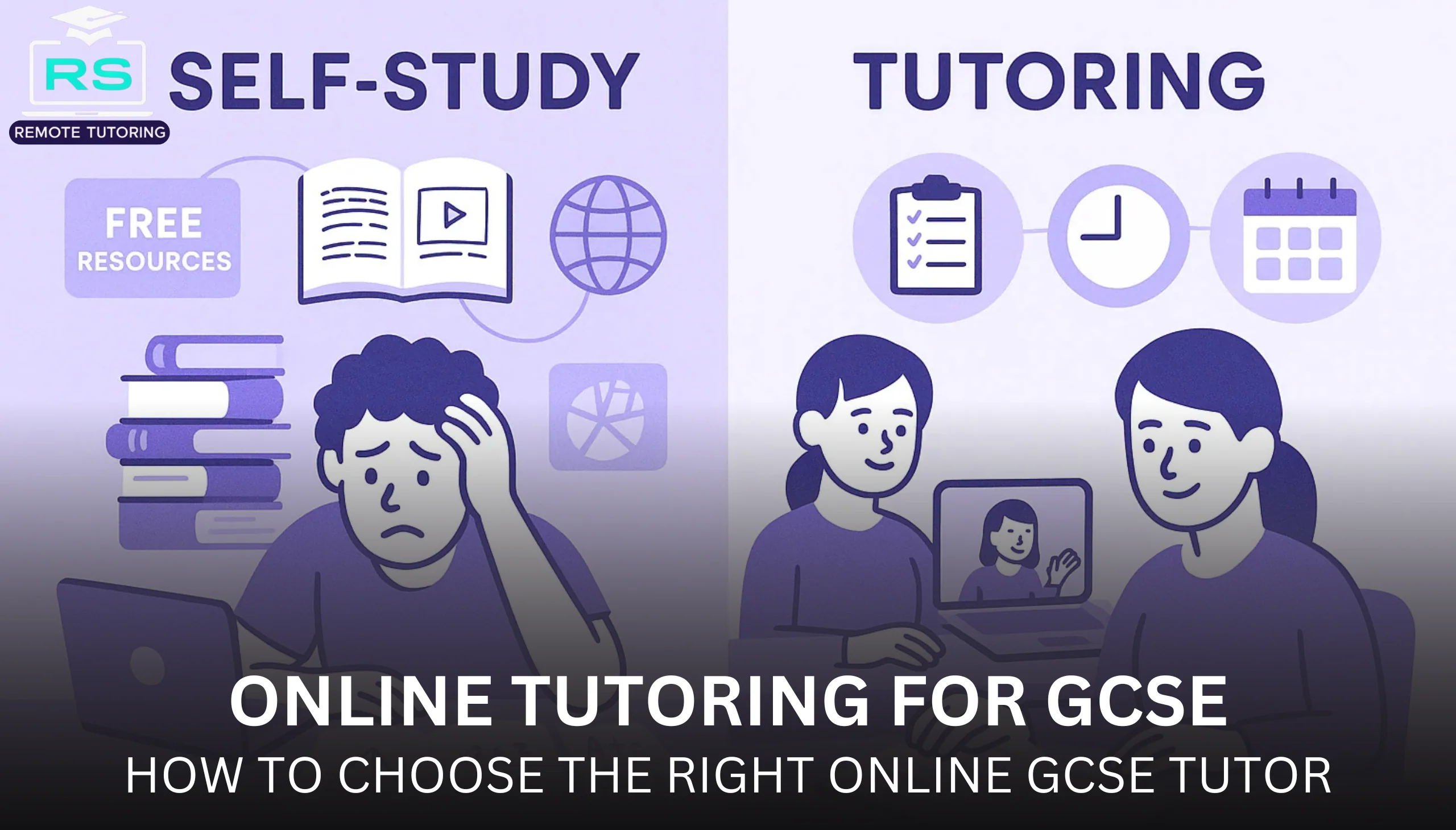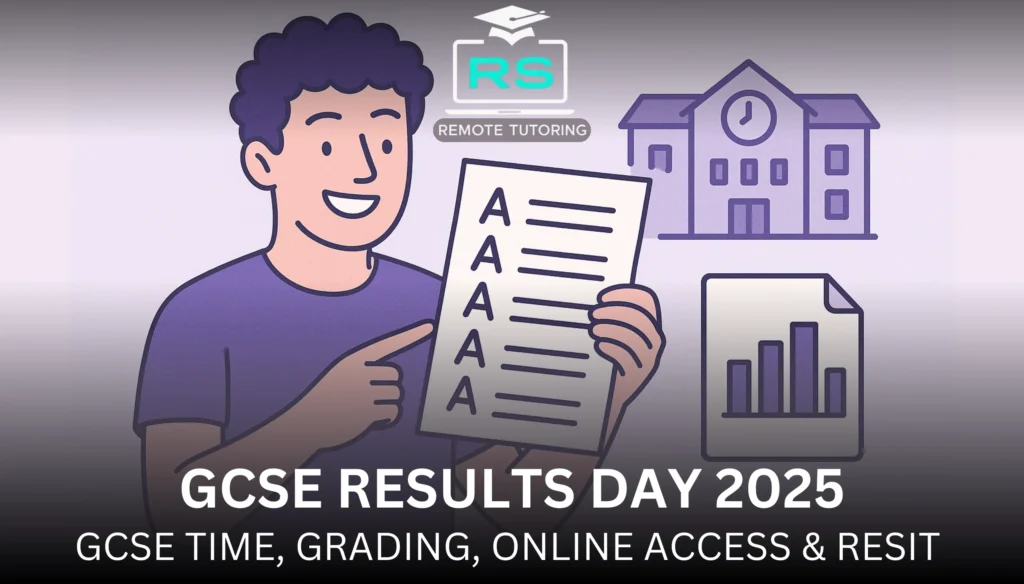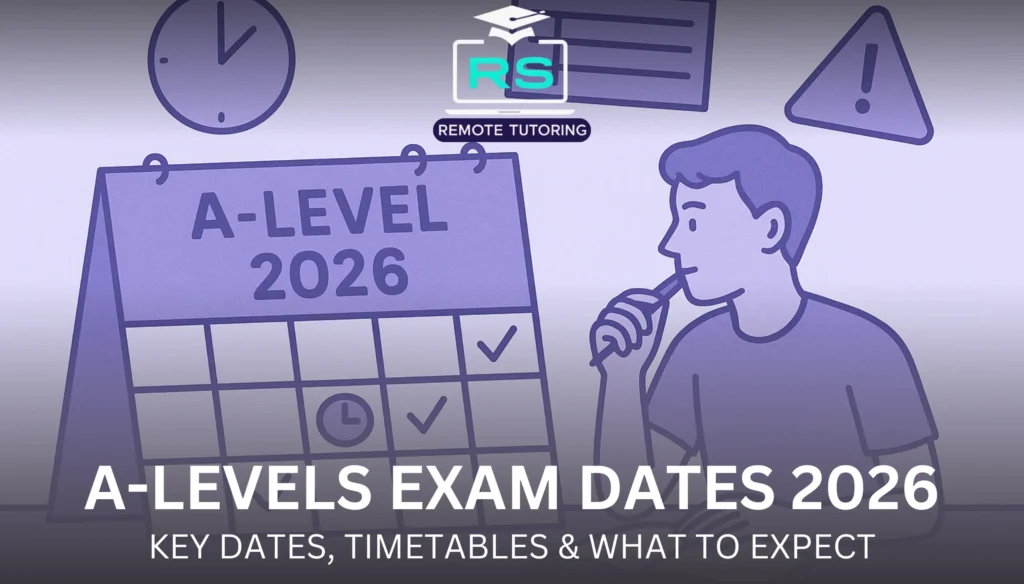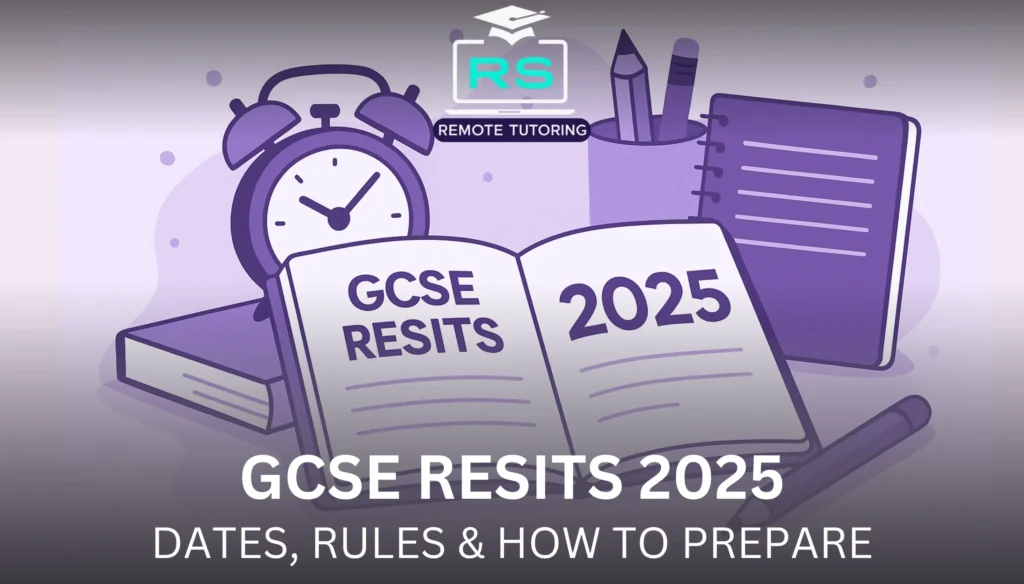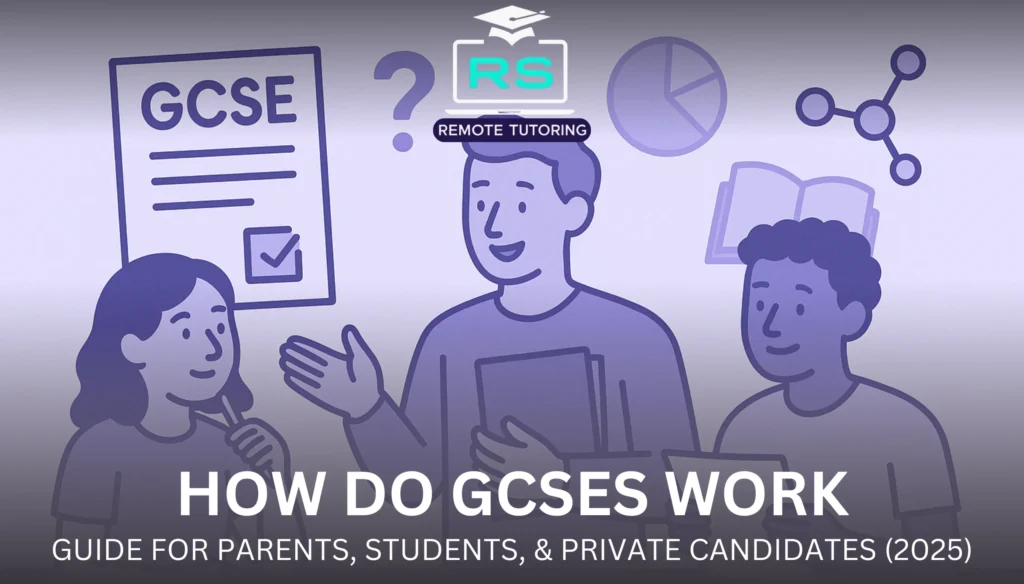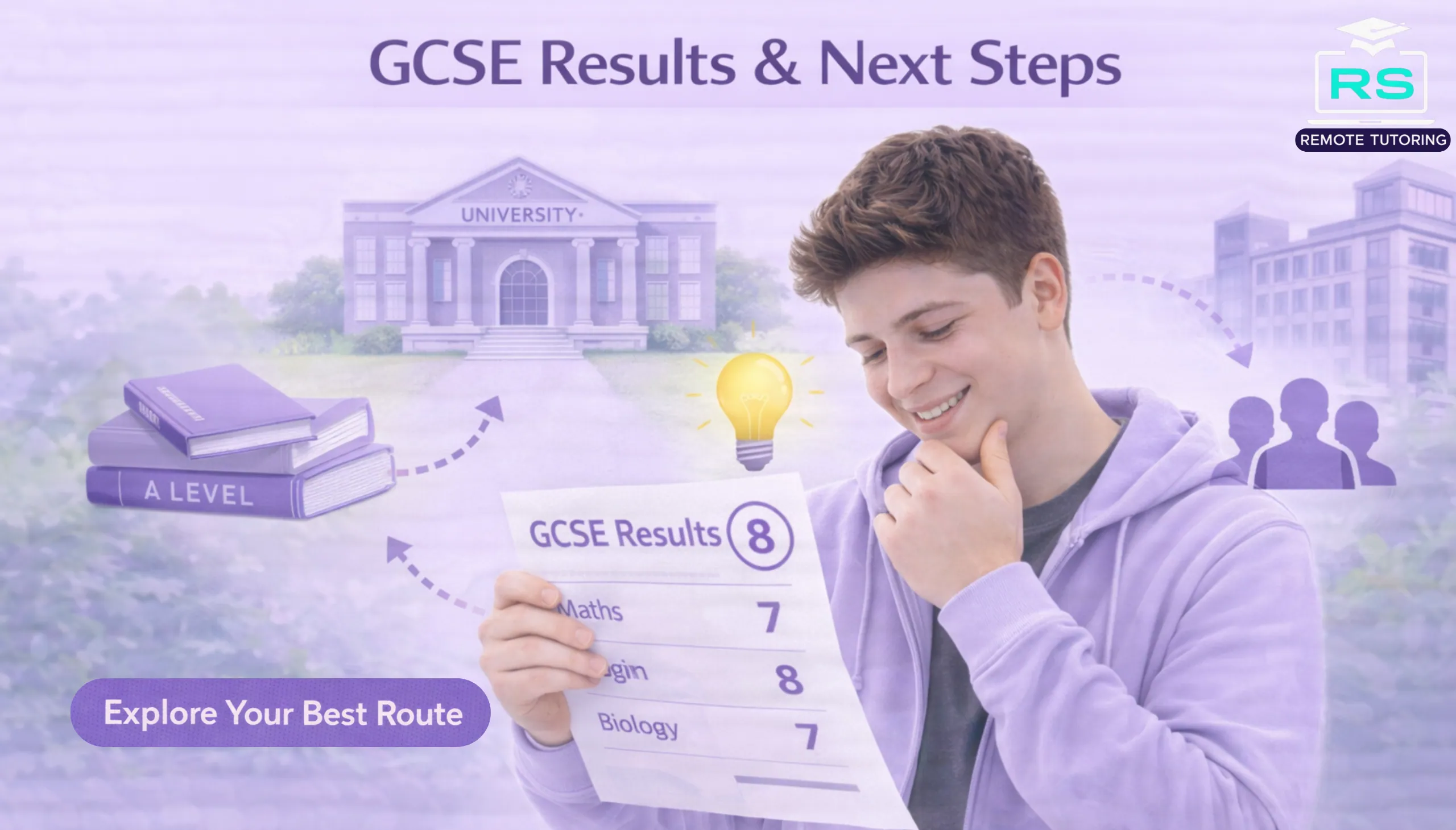Preparing for GCSE exams can be one of the most stressful periods for students and parents alike. Not only are students juggling multiple subjects, but the pressure to achieve high grades often mounts as exam season approaches. In recent years, online tutoring has become a popular option for those seeking extra support. But is online tutoring for GCSE worth the investment? This guide explores how online tutoring works, its benefits, how to choose a tutor, and whether it’s right for your family, all while addressing common questions from parents and students.
Jump to Section
What Is Online Tutoring for GCSE and How Does It Work?
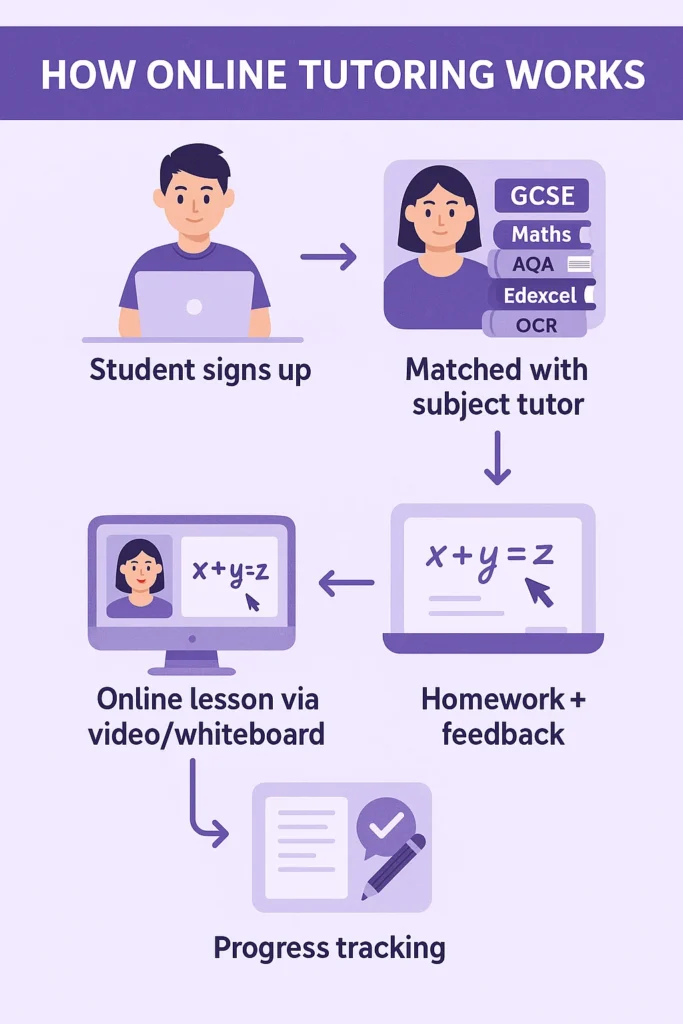
Online tutoring connects students with qualified tutors via video conferencing platforms and interactive tools. Instead of travelling to a tutoring centre or inviting a tutor into your home, sessions take place virtually, often through a secure learning platform with digital whiteboards, file-sharing capabilities, chat functions and screen‑sharing. Lessons are usually scheduled at a convenient time and can be recorded so the student can revisit explanations later.
Most reputable online tutoring services offer:
- Personalised matching: students are paired with a tutor who specialises in the relevant GCSE subject and exam board. For example, GCSE maths tutors will often be familiar with the differences between AQA, Edexcel, OCR and WJEC specifications.
- Structured sessions: each session typically follows a lesson plan tailored to the student’s needs, covering core concepts, problem‑solving techniques and exam strategies.
- Homework and feedback: tutors assign practice questions and provide feedback between sessions to reinforce learning.
- Progress tracking: many platforms offer dashboards that display progress across topics, making it easy for parents and students to see improvements.
Online tutoring can be one‑to‑one or small group. One‑to‑one sessions provide the most personalised attention, while group sessions can be more affordable and offer a collaborative learning atmosphere.
Benefits of Online Tutoring for GCSE Students
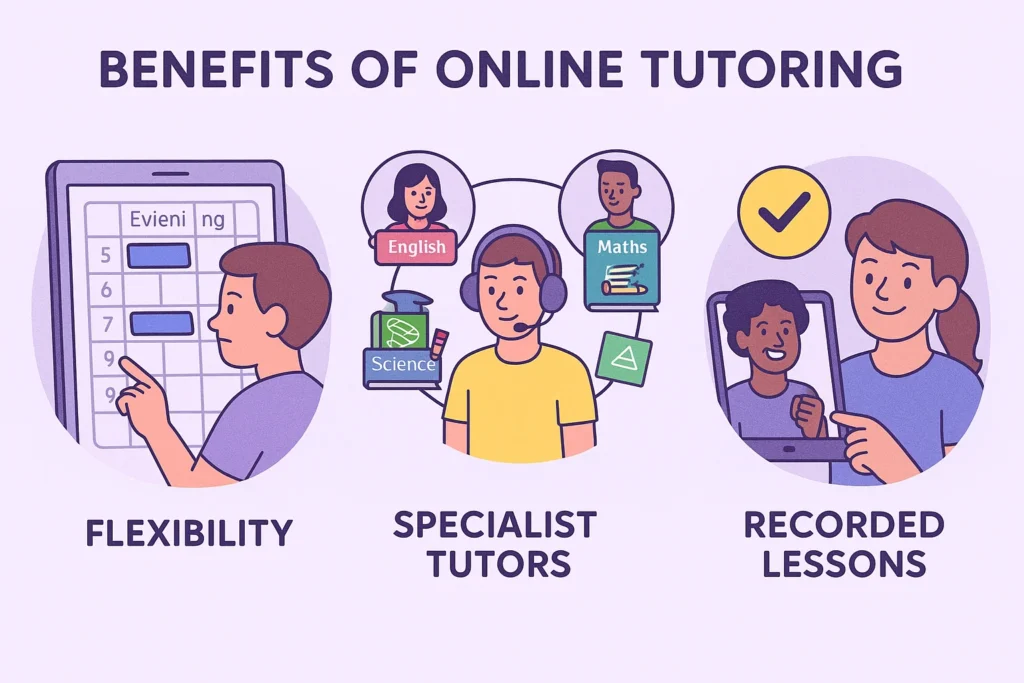
Flexible Scheduling and Convenience
One of the biggest advantages of online tutoring for GCSE is convenience. Sessions can be scheduled at times that fit the student’s routine, evenings, weekends or even during half‑term breaks. There’s no travel time, which can be especially beneficial for families in rural areas or those without easy access to tutoring centres.
Access to Specialist Tutors
Traditional in‑person tutoring limits you to tutors who live nearby. Online tutoring removes this barrier, letting students connect with subject specialists across the country. Whether your child needs help with GCSE maths, English, science, computer science or even religious studies, there’s likely a qualified tutor available.
Personalised Learning and Immediate Feedback
Good online tutors create customised lesson plans based on diagnostic assessments. They identify a student’s strengths and weaknesses, then focus on areas needing improvement. During sessions, students receive real‑time feedback and can ask questions without fear of embarrassment. Research shows that targeted practice improves understanding more effectively than generic revision.
Recorded Lessons and Reusable Resources
Many online tutoring platforms record sessions. Students can replay explanations, revisit problem solutions and review feedback at any time. Additionally, digital resources such as worksheets, slides and interactive quizzes are often shared, providing further practice between sessions.
Cost‑Effectiveness and Range of Options
Online tutoring can be more cost‑effective than in‑person tuition because tutors don’t need to travel. Some providers offer group sessions at lower rates, while others provide subscription packages or pay‑as‑you‑go options. There’s also a broader price range, from university students offering affordable rates to experienced teachers or examiners charging more for their expertise.
Builds Confidence and Reduces Anxiety
For many students, the biggest challenge isn’t the material itself but the confidence to tackle exam questions. A supportive tutor can help students overcome exam anxiety by teaching them how to break down complex problems, practise exam technique and manage time effectively. The reassurance and encouragement provided by a dedicated mentor often reduce stress and boost motivation.
How Online Tutoring Boosts GCSE Performance
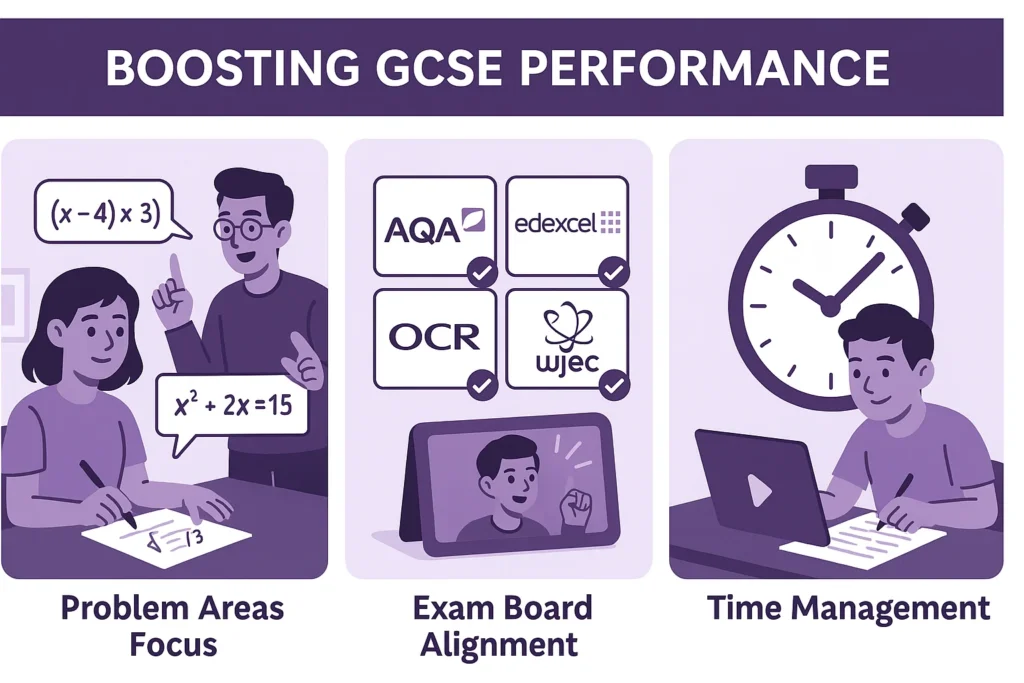
Focused Attention on Problem Areas
Classroom teachers have to divide their time among many pupils. In a one‑to‑one online session, tutors can concentrate on specific misconceptions or gaps in understanding. For example, if a student consistently loses marks in algebra, a tutor can spend extra time explaining methods for solving equations, factoring and working with graphs. This targeted approach ensures difficult topics receive the attention needed for mastery.
Aligns with Exam Board Specifications
Different exam boards emphasise different topics and question styles. Experienced GCSE tutors know these nuances and tailor their teaching accordingly. They use past papers and mark schemes from the student’s exam board to practise specific question types and exam techniques. This ensures the student isn’t caught off‑guard by unfamiliar formats.
Improves Exam Technique and Time Management
Answering exam questions isn’t just about knowing the content; it’s about presenting answers clearly and within the time limit. Tutors teach strategies for allocating time across sections, showing working (even when the final answer isn’t obvious), and spotting command words like “compare”, “simplify” or “justify”. Practising with timed exams also trains students to work efficiently under pressure. Our tutors recommends attempting at least one practice paper each week leading up to the exam.
Encourages Independent Study Skills
While tutors provide guidance, they also teach students how to revise subjects like maths independently. They can show how to create effective revision timetables, use flashcards, summarise topics into mind maps and practise spaced repetition. By learning these study habits, students continue improving even when sessions end.
Comparing Online Tutoring with Self‑Study and Free Resources
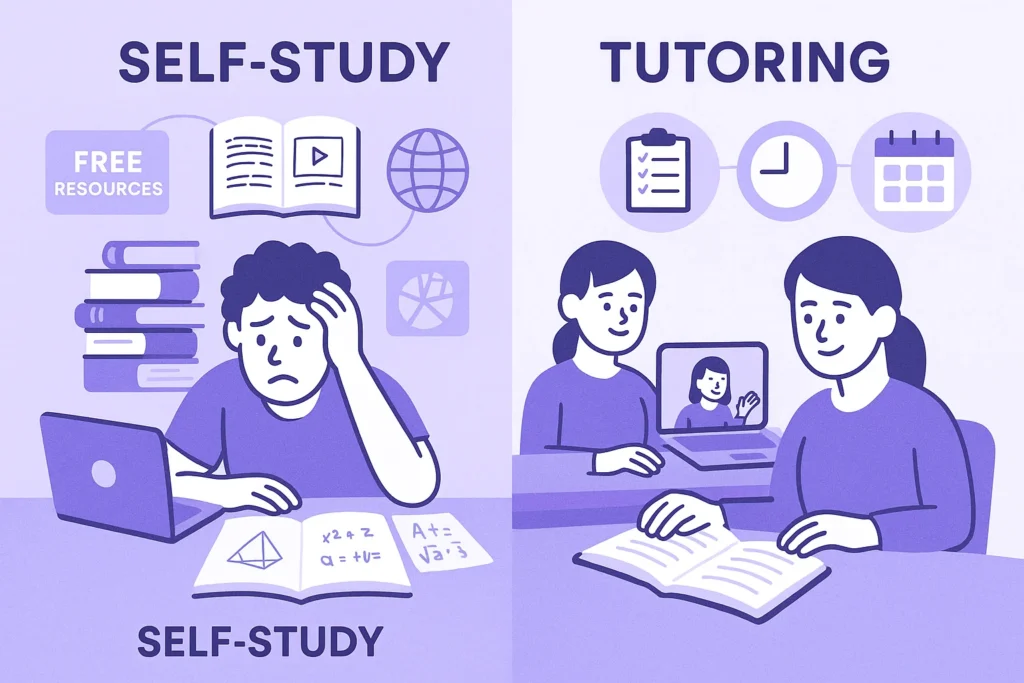
Free Resources and Self‑Directed Learning
There are many free GCSE resources available, including revision websites, past papers, worksheets, YouTube videos and community forums. Students with the discipline to study independently can achieve excellent grades using these materials. They save money and can tailor their learning schedule exactly how they like.
However, self‑study requires strong motivation and good organisational skills. Without a clear plan, it’s easy to jump between topics without mastering any of them. Free resources also vary in quality and may not align perfectly with the exam board.
What Online Tutoring Adds
Online tutoring adds structure and accountability. A good tutor provides a clear plan, ensures the student covers all specification topics and challenges them with exam‑style questions. They can explain concepts in a way that resources might not and adapt lessons based on the student’s progress. For students aiming for top grades or struggling with motivation, the personal guidance can be invaluable.
Deciding If a Tutor Is Worth It
Choosing to hire a tutor depends on multiple factors:
- Current performance: a student consistently getting 8s and 9s might feel confident self‑studying, but could still benefit from targeted help to secure top grades. A student struggling to understand key concepts may need more support.
- Learning style: some students thrive on independent study; others need one‑to‑one guidance to stay motivated and understand complex material.
- Goals and timeline: if there are only a few months before exams, a tutor can help a student quickly identify weak areas and provide an intensive review. For long‑term preparation, a tutor can foster strong study habits over time.
- Budget: online tutoring can vary from affordable student tutors to experienced professionals. Consider what your family can invest and whether group sessions or shorter lessons might be more cost‑effective.
It’s important to remember that tutoring is not a requirement for success. Many students achieve high grades through a combination of self‑study, school teaching and occasional help from teachers. But for those needing extra support or wanting to maximise their potential, online tutoring can provide a significant boost.
How to Choose the Right Online GCSE Tutor
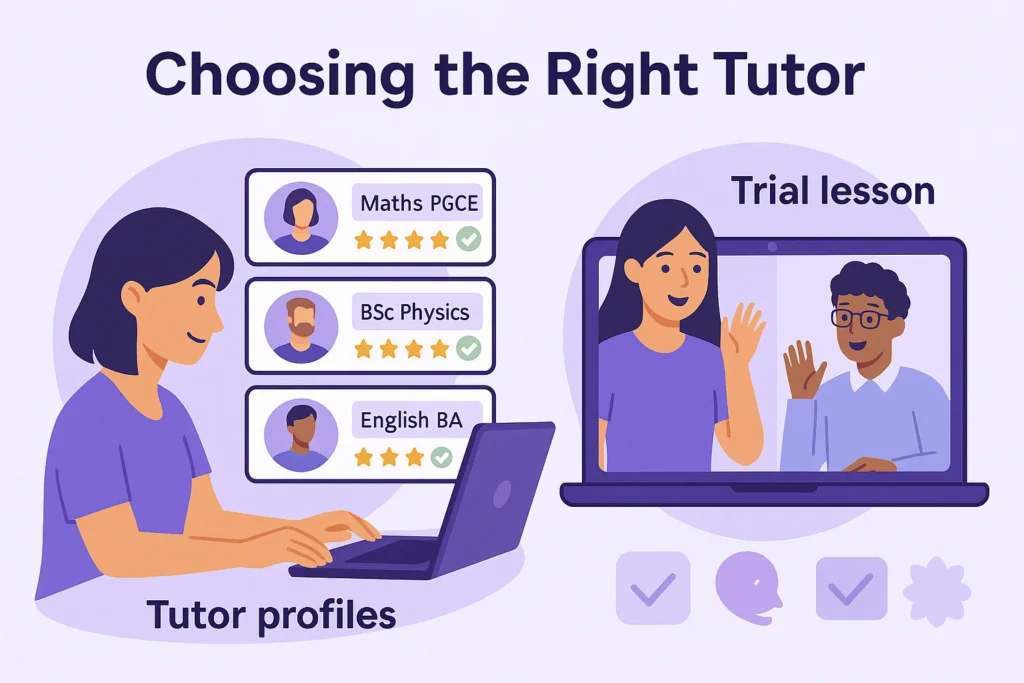
Finding the right tutor is crucial. Here are key factors to consider:
-
Qualifications and Experience
Look for tutors with subject-specific qualifications and teaching experience. Ideally, they should have experience teaching GCSE students and familiarity with your exam board. Tutors who are qualified teachers or have degrees in their subject often have a deep understanding of the curriculum and exam requirements.
-
Teaching Style and Personality
Every student learns differently. Some respond best to gentle encouragement; others prefer direct feedback. Arrange an initial session to see how your child connects with the tutor. A good tutor should listen, ask questions and adapt their explanation to suit the student’s learning style.
-
DBS and Safeguarding
Ensure the tutor has passed a Disclosure and Barring Service (DBS) check (or equivalent). Reputable tutoring companies verify the backgrounds of their tutors and maintain safeguarding policies to protect children.
-
Reviews and References
Look for testimonials or reviews from other parents and students. Ask for references or check online ratings. Positive feedback can indicate reliability and effectiveness. However, remember that everyone’s experience is different; a trial session is still the best way to evaluate a tutor.
-
Flexibility and Communication
Online tutoring should fit around your child’s schedule. Check whether the tutor offers flexible time slots and can adjust frequency leading up to exams. Good tutors also maintain communication with parents, providing progress updates and suggestions for further practice.
Costs of Online Tutoring for GCSE: Is It Worth the Investment?
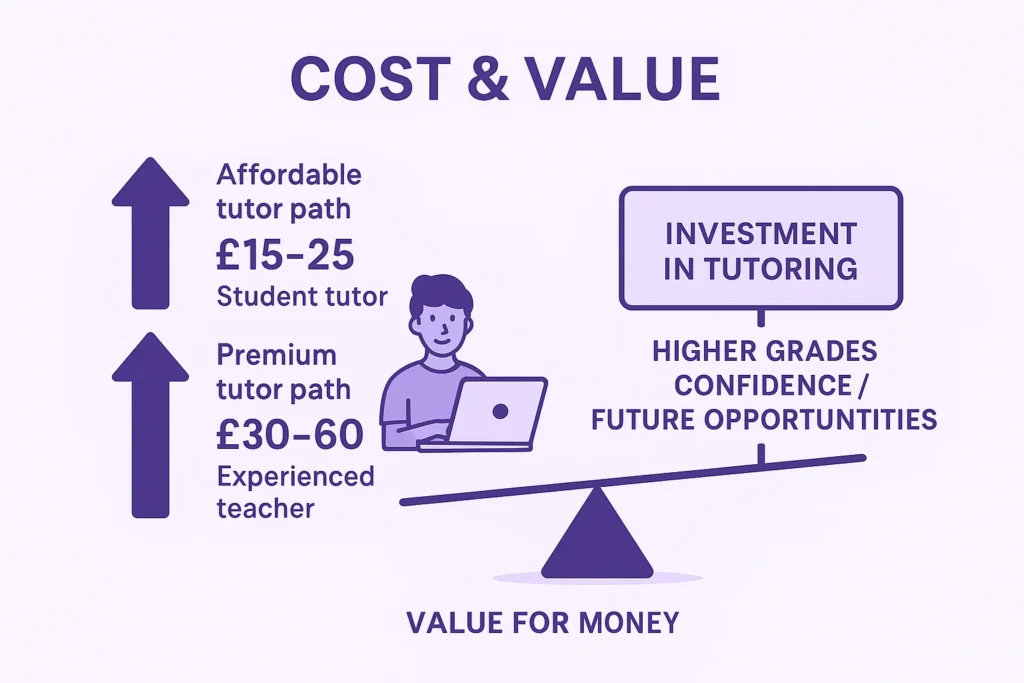
Understanding the Price Range
Online tutoring rates vary widely. University students or trainee teachers might charge around £15–£25 per hour, while experienced tutors or qualified teachers might charge £30–£60 per hour or more. Group sessions can be cheaper per student, but offer less individual attention.
Evaluating Value for Money
When weighing cost against benefit, consider:
- Number of sessions: regular sessions spread over several months provide continuous support and time to improve.
- Quality of instruction: a cheaper tutor may not provide the same targeted guidance as an experienced one. Investing slightly more in a knowledgeable tutor could lead to greater improvements.
- Long‑term benefits: improved grades can lead to better A‑level choices, university offers and career opportunities. The skills gained from tutoring (organisation, problem‑solving, confidence) can benefit students well beyond GCSEs.
Ultimately, whether tutoring is “worth it” depends on your child’s needs, goals and the quality of the tutor. Many families find that even a short period of intensive tutoring can have a lasting positive impact.
What to Expect in an Online Tutoring Session
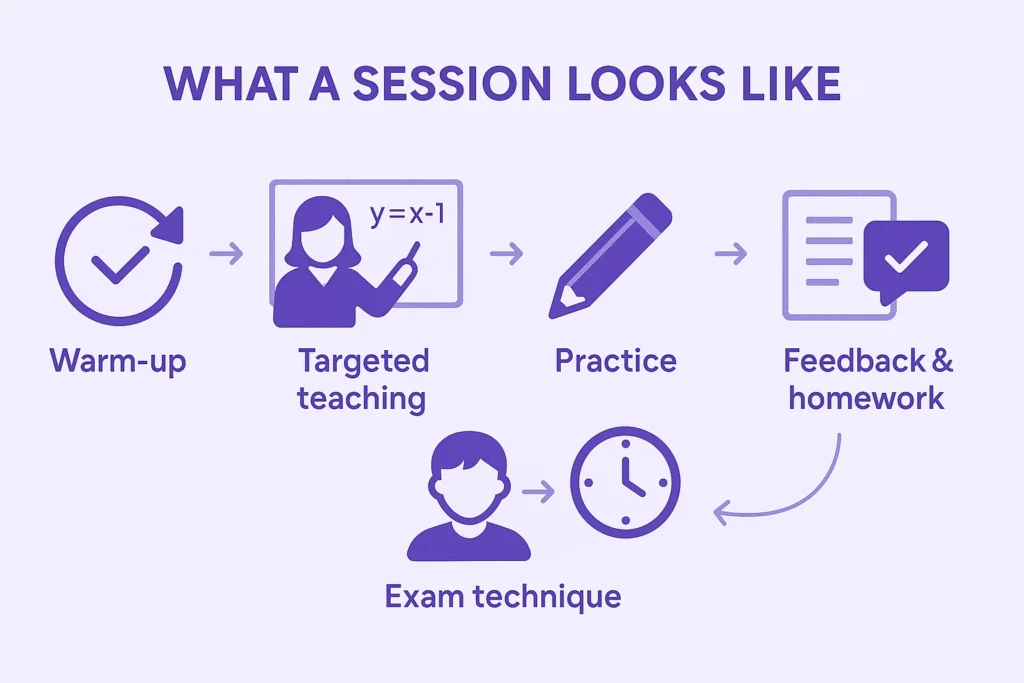
Online tutoring sessions typically include:
- Warm‑up and recap: the tutor reviews previous homework or key concepts from the last session, addressing any lingering questions.
- Targeted teaching: the tutor introduces new content or revisits challenging topics, using digital whiteboards, slides or screen‑sharing.
- Practice questions: the student applies new knowledge by solving problems. Tutors provide instant feedback and model correct solutions when necessary.
- Exam technique: tutors teach strategies for tackling different question types, interpreting exam command words and managing time. They often provide exam tips like writing clear step‑by‑step solutions to gain method marks.
- Homework and feedback: students receive homework or practice assignments to reinforce learning, and tutors discuss progress with students and sometimes parents.
Sessions last between 30 and 60 minutes depending on the student’s age and concentration span. At RS Remote Tutoring, lessons are recorded so students can revisit the material later and parents can see what was covered.
Parental Support: How Parents Can Help Their Child During Online Tutoring
Parents play a crucial role in ensuring online tutoring success. Here’s how you can support your child:
Create a Comfortable Study Environment
Designate a quiet space with good lighting, comfortable seating and minimal distractions. Keep study materials, such as textbooks, calculators and notebooks, within reach. Ensure a stable internet connection and familiarise yourself with the tutoring platform.
Encourage Consistent Attendance and Engagement
Help your child stick to their tutoring schedule. Encourage them to attend every session and actively participate by asking questions and completing assigned tasks. Regular attendance builds momentum and ensures continuity in learning.
Review Progress and Communicate with the Tutor
Check in with your child after each session. Ask what they found easy or challenging. Many tutors provide progress updates; review these and ask for clarification if needed. Communication between parents and tutors can help adjust the approach to better suit your child’s needs.
Provide Emotional Support and Motivation
Exam preparation can be stressful. Offer encouragement and praise effort rather than just results. Remind your child that setbacks are part of learning and celebrate their achievements along the way.
Common Concerns and FAQs
Is online tutoring as effective as in‑person tutoring?
Yes, if delivered well. Studies show that online tutoring can be just as effective because it still provides personalised attention, interactive learning and immediate feedback. The lack of travel time also means lessons can be scheduled more frequently or flexibly.
Can online tutoring replace classroom teaching?
No. Online tutoring is a supplement, not a replacement for school. Tutors reinforce what’s taught in the classroom, fill knowledge gaps and provide exam practice. The teacher remains the primary instructor and exam board content remains the same.
Is online tutoring safe?
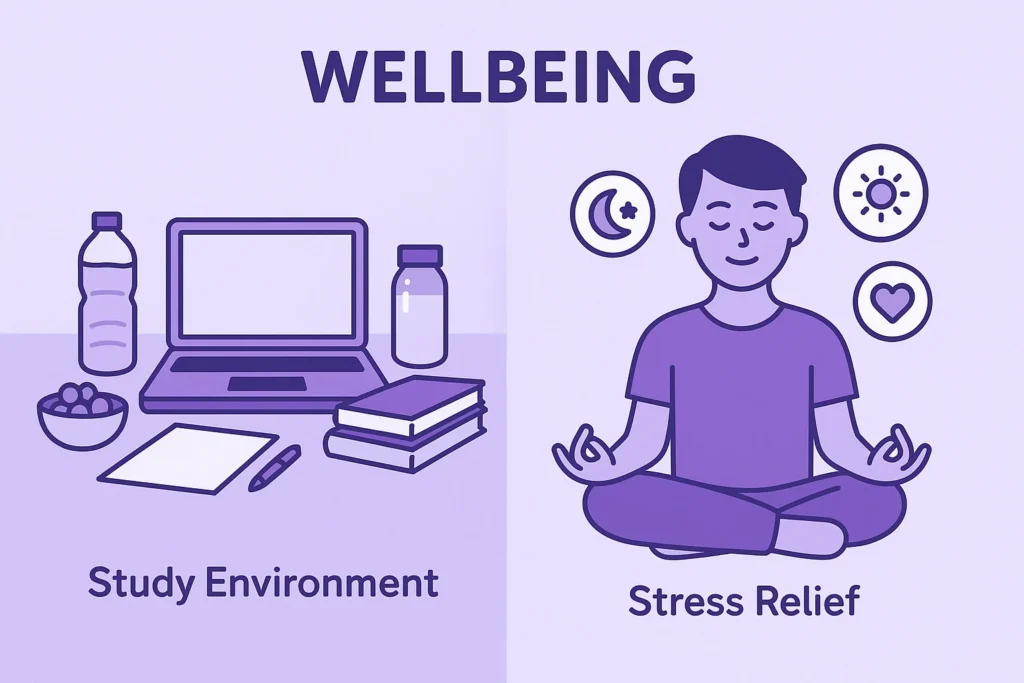
Reputable tutoring companies run DBS checks on their tutors and ensure sessions take place through secure platforms. Parents can sit in on sessions or watch recordings. Always choose providers with clear safeguarding policies and check tutors’ credentials.
How soon before the exam should tutoring start?
The earlier the better. Many students start weekly sessions at least three months before exams. If time is short, a more intensive schedule may be needed. Tutoring sessions can also continue during school holidays to maintain momentum.
Do you need online tutoring for all subjects?
Not necessarily. Students may only need support in subjects they find challenging. Our tutors at RS Remote Tutoring specialise in maths, English, science, computer science and religious studies. Focusing on problem areas ensures time and resources are used effectively.
RS Remote Tutoring: Expert GCSE Support from Anywhere
At RS Remote Tutoring, we believe every student deserves high‑quality support. Our team of UK‑qualified teachers and subject specialists understand the pressures of GCSEs and know how to help students succeed. Key features of our service include:
- Specialist GCSE tutors in maths, English, science, computer science and religious studies.
- One‑to‑one and small group sessions conducted via video conference, using digital whiteboards and interactive tools.
- Recorded lessons available for playback at any time, helping students revisit explanations and catch up on missed content.
- Homework assignments and feedback, reinforcing learning between sessions.
- Affordable packages and flexible scheduling to fit your family’s needs.
- Positive track record: our students often experience grade improvements and increased confidence. Families appreciate our personalised approach and the convenience of learning from home.
To see our tutors profiles and read more about our approach, visit our expert tutors page.
Is Online Tutoring for GCSE Worth It?
Online tutoring for GCSE offers numerous advantages: flexible scheduling, access to specialist tutors, personalised lessons, recorded sessions, and cost‑effective options. It can make a significant difference for students seeking targeted support, improved confidence and higher grades. However, it’s not a one‑size‑fits‑all solution. Students who are self‑disciplined and already performing well may thrive on free resources alone. Parents and students should consider current grades, learning style, goals and budget before committing to tutoring.
For those who do choose online tutoring, selecting a qualified, experienced tutor is crucial. With the right match, online tutoring becomes a powerful tool that complements school teaching and self‑study. At RS Remote Tutoring, our expert teachers are ready to help your child navigate the GCSE journey, build strong foundations and achieve results they can be proud of.

Raja specializes in Physics and Maths, with over 5 years of experience. He offers KS2, KS3, and GCSE Science and Maths lessons. He graduated from one of the top universities in the UK.

